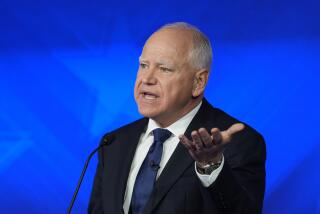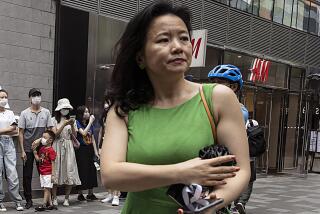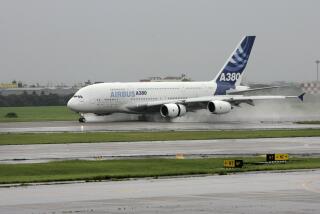Ousted Reporter Denies Spying on China
- Share via
HONG KONG — John Burns, the New York Times reporter expelled from China, said Wednesday that he would not have ridden through the countryside on a motorcycle if he had any intention of spying.
“This is not the kind of thing spies do,” he told reporters after his arrival in Hong Kong. “I’m not a spy. I’m a journalist. If I had been a spy, I certainly would not have chosen to do anything as clumsy as this way to go about gathering information.”
A statement issued in Peking by Public Security Bureau officer Xu Hui claimed that Burns, American attorney Ed McNally and a Chinese man “broke into a militarily restricted zone of our country and took numerous photographs of classified objects.”
“Such demeanor obviously constitutes an act of spying and intelligence gathering which will not be tolerated by any sovereign state and needless to say is also a regrettable incident,” the statement said.
It called the case “a grave one,” adding that the men “disregarded the laws of China, deliberately violating the law governing aliens entering into and exiting from the People’s Republic of China.”
Burns, 41, said he might have traveled through militarily sensitive areas by mistake.
“As for military areas, I have no way of knowing. It’s not my job to inquire into Chinese military dispositions. It was not my purpose to do so in this trip. It was purely journalistic,” he said.
He said Chinese authorities should recognize his innocence because they had confiscated his travel notes and film.
A. M. Rosenthal, executive editor of the paper, and Foreign Editor Warren Hoge went to Peking seeking Burns’ release. Hoge said Chinese officials told Rosenthal they acted with “great leniency” in expelling the reporter before the investigation was complete.
Burns said in Hong Kong that his trip “was a misjudgment in the sense that I misjudged the extent of tolerance from China.”
Police detained Burns and his companions for two days in remote Shaanxi province for entering one of many rural areas in which foreigners are not permitted. They were allowed to return to Peking on July 7 after writing lengthy “self-criticisms.”
However, Burns was detained again last Thursday at Peking airport as he and his family prepared to leave on vacation. He was questioned by police for 15 hours at the airport, his home was searched and he was taken to a police detention center at 4 a.m. the next morning.
“The documentations that we had were judged to be inadequate by the Chinese authorities,” Burns said of the motorcycle trip, stressing that he did not wish to go into detail.
However, he added: “The journey was drawn in such a way as to lead us from one open city to another. Those open cities are among the heavily visited cities in China.”
Burns, who holds dual British and Canadian citizenship, said he knew other foreigners had made similar trips without encountering trouble from Chinese authorities.
He said he did not know why he was detained, but had formulated some theories, which he would not discuss.
“I do have a profound regret, not about the journey itself . . . but because the nature of my departure today makes it unlikely that for some considerable time I will be able to return to China,” Burns said.
McNally, a former U.S. Justice Department policy adviser working as a visiting professor at Peking University, told the news conference he did not know why he was not detained. The whereabouts of the Chinese traveling companion is not known.
Burns is the fourth Western journalist expelled or barred from re-entering China in the last decade.
More to Read
Sign up for Essential California
The most important California stories and recommendations in your inbox every morning.
You may occasionally receive promotional content from the Los Angeles Times.













